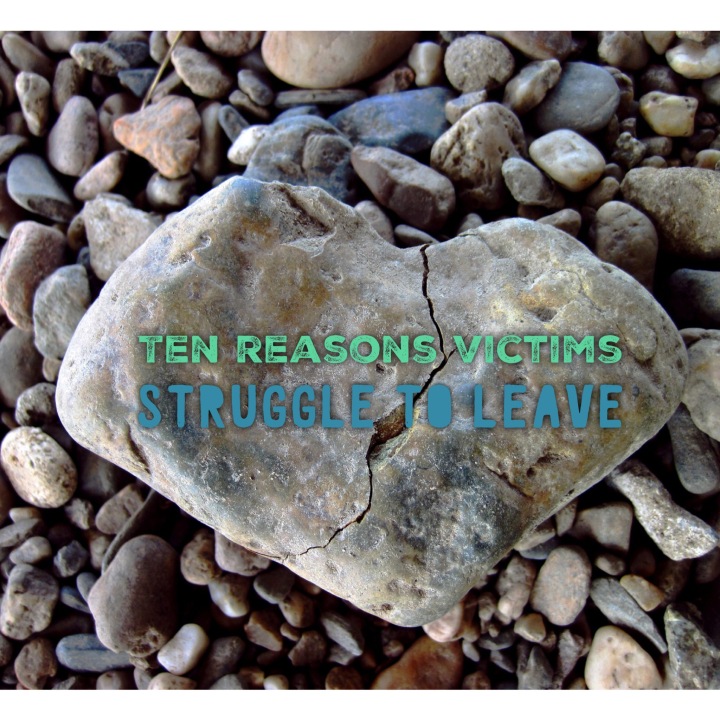
In efforts to continue to bring awareness to Domestic Violence in the United States during Domestic Violence Awareness Month (DVAM), Balancing the Circus will share an explanation to why victims of domestic violence struggle leaving. I hope this allow others to reduce the stigma, increase awareness and direct others to support. After reading the ten reason, come back tomorrow to learn how to be of help if you know someone who may be a victim of domestic violence.
- Fear in General. Often they have been cut off from all their resources and have lived under threat and control, not being able to rely on their own decision making.
- Low self-esteem. People who have been emotionally beaten down over a period of begin to see themselves as failures at everything they do. Offenders reinforce they belief to maintain their control.
- Self-blame. Victimized people blame themselves for the abuse. This is constantly reinforced by the offender who blames them for the abuser’s violence behavior.
- Holding the family together. Women are raised and socialized to see themselves as the center of family cohesiveness, such as keeping their family safe and together.
- Fear of being crazy. When you are told you are crazy often enough you begin to believe it. As a result, victims questions their ability to cope with all os the responsibilities of the outside world.
- Dependence. Victims of Domestic Violence have likely had their world made very small so that they could be controlled. As a result, they lack experience in making their own decision and acting independently.
- Isolation. One of the most common things done to victims of domestic violence is to isolate them from family friends, physically and emotionally. The more isolated they are, the less likely they will seek help or be aware of the help that is available in their community.
- Traditional Values. Traditional roles are in conflict with separation and divorce and support the notice of keeping the family together at all cost. There may also be a strong religious influence and unsupportive family members that reinforce a victim’s belief that she must stay in abusive relationship.
- Learned Behaviors. When you live in an isolated and abusive environment, over time the experience take on a normalcy because there is nothing else to compare it to. When combined with lack of belief in oneself, the victim may come to the belief that the situation is impossible to change. This may be further embedded if the victim grew up in an abusive home.
- The honeymoon stage and promise of change. Victims often love their partners and want a good marriage and a stable family life for their children. With the promise of change is the hope that all of these things are possible. In the hopes that the promise of change will be kept, the victim will forgive and give the relationship about change for a new beginning.
What can be done? Deal with the what is, not the what if. If things were going to change on their own, they would have. If there is to be any chance of hope for change, for the victim and the victim’s family, it is necessary to take action. Call the National Domestic Violence Hotline at 1-800-799-SAFE (7233). Check out previous blogs for Domestic Violence Awareness Month on Statistic and Warning Signs. Please bring awareness and share this information with others.
REMEMBER that you are not alone, you are not to blame and help is available.
Sources: http://www.ncadv.org and Therapist Guide to Clinical Intervention by Sharon L. Johnson
#domesticviolence #DVAM2016 #DVAM #takeastandagainstdomesticviolence
